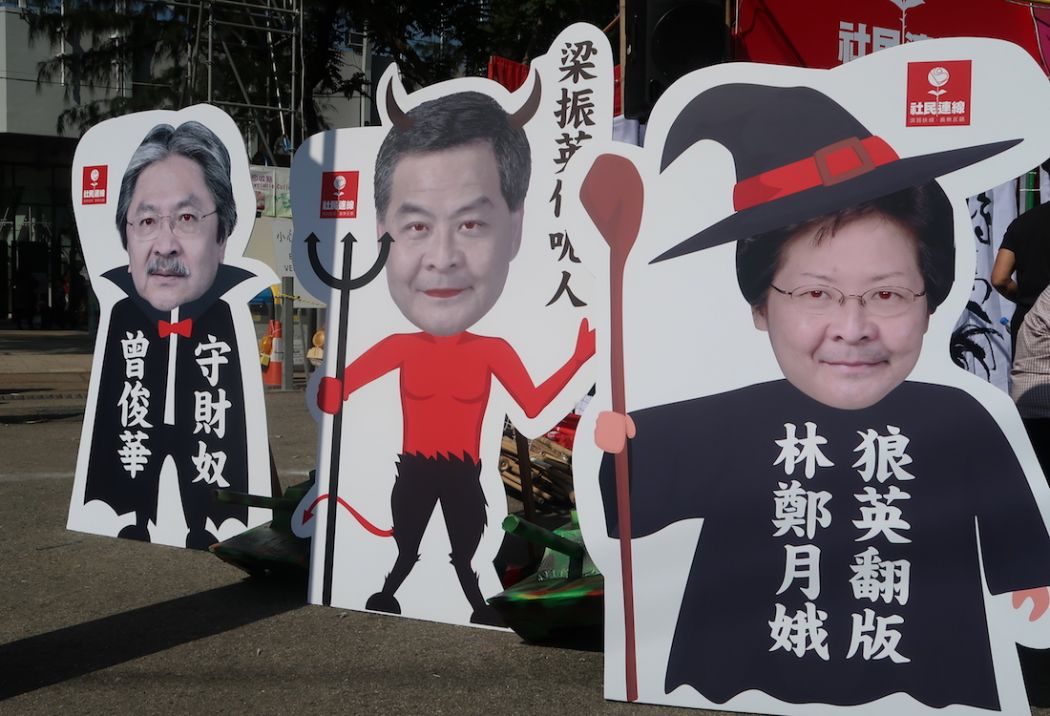The pro-democracy camp announced a plan on Sunday promising to nominate a popularly chosen candidate in the upcoming chief executive election.
Currently, only 1,200 Election Committee members are entitled to nominate and pick the city’s next leader. Many of the members in previous elections were accused of following Beijing’s order in casting their ballots. To formally stand as a candidate in the race, a minimum of 150 nominations are required.

Public nomination
The campaign is led by the University of Hong Kong’s law professor Benny Tai and the pro-democracy group Power of Democracy. If all of the pro-democracy Election Committee members participate in the campaign, they can nominate – at most – two candidates.
In 2013, Tai founded the Occupy Central campaign to engage the public in designing an electoral system based on universal suffrage, as the government was about to prepare a political reform package. Different political groups then campaigned for their ideas on universal suffrage, with the idea of “public nomination” – letting the public nominate candidates – gaining the most support in an unofficial plebiscite.
Despite demands for greater electoral freedom, Beijing held that a 1,200-member nomination committee would vet candidates before a popular vote. The decision eventually led to the 79-day pro-democracy Occupy protests.
Under the new plan, pro-democracy Election Committee members will consider nominating a candidate who meets three criteria: They must receive 37,790 nominations – representing one per cent of the electorate – from the general public; they must promise to push through a political reform package not based on Beijing’s decision in 2014; and they must promise to defend the city’s core values.

Around 80 out of 325 pro-democracy Election Committee members have joined the campaign, HKU legal scholar and an Election Committee member Eric Cheung Tat-ming said. He believes it will win support from more than 150 members.
Members of the public will be able to cast their “vote” between February 7 and 22 in an electronic system jointly run by HKU Public Opinion Programme and the Polytechnic University’s Centre for Social Policy Studies.
They will be given the options of the four publicly declared candidates, and anyone else who wants to contest in the poll, Tai said.
The organisers will then hold a public event on February 25 for candidates to debate their platforms and for members of the public to discuss whom to nominate. The idea is similar to the “deliberation day” event organised by Tai in 2014, during which participants formulated and discussed their ideal electoral systems.

Lawmaker “Long Hair” Leung Kwok-hung indicated his intention on Sunday to participate in the poll. He said he would only consider whether to run for chief executive after securing the required number of public nominations.
‘Lesser evil’
Some pan-democrats have attracted criticism for hinting that they may nominate former finance secretary John Tsang, whom they consider to be a “lesser evil.”
Leung previously said that voting for any pro-establishment figures, including Tsang, would hurt the city’s democracy movement as many pro-democracy supporters would feel disillusioned and give up on their fight.
Activist Joshua Wong also warned against buying into the “media narrative” that amplifies Tsang’s disagreement with incumbent leader Leung Chun-ying. He urged the pro-democracy camp to review Tsang’s past financial policies that he said went against grassroots interests.

Barrister and former lawmaker Margaret Ng said that, contrary to popular belief, support from the public is a criterion that Beijing considers when picking Hong Kong’s leader. She previously made a proposal similar to Tai, suggesting a shadow election whereby Hongkongers can pick their leader in an unofficial referendum.
She urged the pro-democracy camp on Monday to assess each candidate according to their platforms and visions, and then let the public cast a vote.
Four publicly declared candidates are: Retired judge Woo Kwok-hing, lawmaker Regina Ip, former chief secretary Carrie Lam, and former finance secretary John Tsang.
The nomination period runs from February 14 to March 1. The chief executive election is scheduled for March 26.
